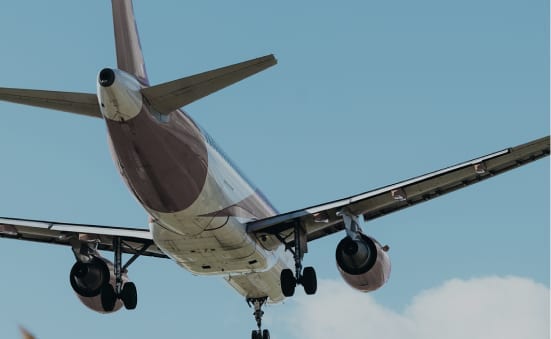Unmanned Aircraft System (UAS)
NOTE REMINDER
Kindly submit the application with all the related documents to CAAM within 14 working days before date of flight.
Application submitted less than 14 working days will be rejected and incomplete application will not be processed.
Unmanned aircraft system means an aircraft and its associated elements which are operated with no pilot on board
- small unmanned aircraft system
unmanned aircraft system, other than a balloon or a kite, having a mass of not more than 20 kilogrammes without
its fuel but including any articles or equipment installed in or attached to the aircraft at the commencement of its flight - small unmanned surveillance aircraft
a small unmanned aircraft which is equipped to undertake any form of surveillance or data acquisition - unmanned aircraft system of more than 20kg
- in Class A, B, C or G airspace
- within an aerodrome traffic zone
- at the height of more than 400 feet above the surface of the earth
UNLESS obtain an authorization from the Chief Executive Officer
All UA need authorisation for flying. Authorisation from the Chief Executive Officer is required to be obtained.
| Application for Standard Authorisation to Fly (ATF) | drone.atf@caam.gov.my |
| Application for Certificate of Approval (COA) | drone.rpto@caam.gov.my |
| Application for Agriculture UAS Operation under Unmanned Aerial Work Certificate (UAWC) | drone.agr@caam.gov.my |
| Application for Special UAS Project (SUP) | drone.specific@caam.gov.my |
*note: any inquiries other than the authorisation listed above, please email to drone@caam.gov.my
Carrying article or animal from UAS involves the operation classified as Special UAS Project (SUP). Thus, the person in charge operating the UAS carrying goods required the permit for the operations.
If required by the CAAM, a UA of more than 20 kilogrammes without its fuel shall be registered as per following:
a. The UAS operator must display on the UAS marks consisting of Roman capital letters “CAAM-UAS-XXXX” followed by the four (4) digits registration number of the aircraft assigned by the CAAM. For example, CAAM-UAS1234.
b. The registration markings must be readable and weatherproof;
c. The size of the marking may be determined by the operator and acceptable by the CAAM.
Some of the standard fees and charges applicable to UAS according to the Civil Aviation (Fees and Charges) Regulations 2016.
| No | Subject Matter | Description | Fees and Charges (RM) |
| 88 | Application for aerial work certificate | (b) Unmanned aircraft system | 800 |
| 89 | Application for renewal of aerial work certificate | (b) Unmanned aircraft system | 500 (per year) |
| 90 | Application for variation of aerial work certificate | (c) Unmanned aircraft system | 250 |
| 96 | Application for authorisation to fly an unmanned aircraft system | An unmanned aircraft system with a mass of more than 20 kilogrammes without its fuel | 1,000 |
| 97 | Application for authorisation to fly small unmanned surveillance aircraft (Refer to Note 1) | Any small unmanned surveillance aircraft | 250 |
| 122 | Performance of functions within or outside Malaysia by officer of the Department of Civil Aviation in respect of which fee or charge is specified in this Schedule in addition to expenses incurred under subregulation 204(3) of the Civil Aviation Regulations 2016 and subregulation 65(2) of the Civil Aviation (Aerodrome Operations) Regulations 2016 (Refer to Note 2) | (a) Travelling within Malaysia
(b) Travelling outside Malaysia |
Not less than 640 (per day)
Not less than 1,280 (per day) |
| 123 | Providing copy of document | Certificate, licence, permit, approval, authorisation, permission, or any other document issued under the Act or subsidiary legislation made under the Act |
50 (per copy) (Refer to Note 3) |
| 124 | Providing advice or aeronautical information
(Refer to Note 6) |
Providing advice or consultation relating to:
(a) Any technical, safety, security or other related issues (b) Any certificate, licence, permit, approval, authorisation, permission, any other document and rating. |
Not less than 300 (per person per hour)
(Refer to Note 4 and Note 5) |
Note:
(1) SUsA is a subset of SUA which is equipped to undertake surveillance and data acquisition. Item such as Model Aircraft, Light Show Drones are most likely not SUsA.
(2) Subregulation 204(3) of MCAR 2016 (Safety oversight). Safety oversight is a function performed by a State to ensure that individuals and organizations performing an aviation activity comply with safety-related national laws and regulations.
(3) Providing a copy means an extra copy and not the initial copy of document issued upon approval of a certification/ authorisation/ permit, etc. It also is for the whole per type document (in bulk) and not per page.
(4) “per person” means a person giving advice or consultation to an operator or an individual
(5) “per hour” is inclusive of part of the hour.
(6) Advice and consultation can be provided in the form of meeting, seminar, webinar, course, talk, training or any other matters that require CAAM officers to be present and provide input requested by the operator.
Authorisation to Fly
|
Applicable Schedule Item |
Summary of Subject Matter | Fees and Charges (RM) |
Multiplier |
|
96 |
ATF for UAS more than 20 kilogrammes | 1,000 | (a) Number of Unmanned Aircraft
(b) Application (location) |
| 97 | ATF for SUsA | 250 |
(a) Number of Unmanned Aircraft (b) Application (location) |
An example of the charging mechanism for a small unmanned surveillance aircraft is as follows:
a) One application is to be used for each proposed location of less than 15 nautical miles (nm) radius. An excess of operations within the 15nm radius will require the applicant to submit another form.
b) However, to make ease to applicant not having to fill up the application form in full. CAAM allows multiple locations within one form. The cost would still be calculated in accordance with the 15nm radius limitation.
c) Explanation:
Payment is made based on the number of Unmanned Aircraft (UA) and the number of 15nm radius.
d) Maximum duration per application is for 90 days.
e) Scenario:
Operator ‘A’ utilise two (2) SUsA to conduct surveillance on 100 locations within two (2) 15nm radius.
Therefore, the payment will be 2 (UA) X 2 (Locations across 15nm) X 250 (Application Fee) = RM 1,000
|
Number of UA |
Number of Location | Datum | Total |
| 2 | 2 | 250 |
1000 |
Certificate of Approval for a Remote Pilot Training Organisation (RPTO)
| Applicable Schedule Item | Summary of Subject Matter | Fees and Charges (RM) | Multiplier |
| 122 | Performing functions as per subregulation 204(3) of MCAR 2016 |
(a) Not less than 640 (per day) within Malaysia (b) Not less than 1,280 (per day) outside Malaysia |
(a) Number of inspectors
(b) Number of days |
| 123 | Providing copy of document | 50 (per copy) | (a) Any additional extra copy of document (per document type) |
| 124 | Providing advice or aeronautical information | 300 | (a) Per hour |
Agricultural UAS Operations Aerial Work Certificate (UAWC)
Commercial Aerial Work Certificate (C-UAWC Holder)
| Applicable Schedule Item | Summary of Subject Matter | Fees and Charges (RM) |
Multiplier |
|
88 |
Initial application for AWC | Unmanned aircraft system | (a) Per application |
|
89 |
Renewal application for AWC | Unmanned aircraft system | (a) Per application |
|
90 |
Variation application for AWC | Unmanned aircraft system | (a) Per application |
|
122 |
Performing functions as per subregulation 204(3) of MCAR 2016 | Not less than 640 (per day) within Malaysia
Not less than 1,280 (per day) outside Malaysia |
(a) Number of inspectors
(b) Number of days |
|
123 |
Providing copy of document | 50 (per copy) | (a) Any additional extra copy of document (per document type) |
|
124 |
Providing advice or aeronautical information | 300 | (a) Per hour |
Private Aerial Work Certificate (P-UAWC Holder)
| Applicable Schedule Item | Summary of Subject Matter | Fees and Charges (RM) | Multiplier |
| 88 | Initial application for AWC | Unmanned aircraft system | (a) Per declaration |
| 89 | Renewal application for AWC | Unmanned aircraft system | (a) Per declaration |
| 90 | Variation application for AWC | Unmanned aircraft system | (a) Per declaration |
| 123 | Providing copy of document | 50 (per copy) | (a) Any additional extra copy of document (per document type) |
Special UAS Project (SUP) Approval
|
Applicable Schedule Item |
Summary of Subject Matter | Fees and Charges (RM) |
Multiplier |
|
123 |
Performing functions as per subregulation 204(3) of MCAR 2016 | (a) Not less than 640 (per day) within Malaysia
(b) Not less than 1,280 (per day) outside Malaysia |
(a) Number of inspectors
(b) Number of days |
|
123 |
Providing copy of document |
50 (per copy) |
(a) Any additional extra copy of document (per document type) |
|
124 |
Providing advice or aeronautical information |
300 |
(a) Per hour |
where the person is an individual, to a fine not exceeding fifty thousand ringgit or to imprisonment for a term
not exceeding three years or to both
where the person is a body corporate, to a fine not exceeding one hundred thousand ringgit
FAQs About Remote Pilot Training Organisation (RPTO)
From the description you have stated, it sounds like your operations is within an Standard Authorisation To Fly (ATF). RCOC-B is not required for an Standard ATF application. Click here to know more on Standard ATF application.
If the RCoC-B is paired with Module 1 (EVLOS), the Certificate holder may operate operations that involve an unmanned aircraft being flown beyond the VLOS of the remote pilot but make use of visual observers for the purpose of avoiding collisions (i.e., operations that are frequently referred to as Extended VLOS [EVLOS]). Only RCoc-B that paired with Module 2 (AGR) may operate operations for agricultural UAS works which include dispensation operations and fulfils requirements of CAD 6011 (II).
While there are numerous drone-related institutions in Malaysia, currently only six have been approved by CAAM as ATO-RPTO.
RPTO students will undergo both theoretical examinations and practical flying tests.
The theoretical exams consist of a minimum of 40 questions for RCOC-B, and 30 questions each for module 2 and A2 RCOC.
A minimum score of 75% on a theoretical knowledge examination paper is required to pass, and there is no penalty marking.
If a remote pilot trainee fails one or more theoretical knowledge examination papers, further training will be determined by the relevant authority. If the trainee fails all attempts of the same paper or cannot pass all theoretical knowledge exams within a set time frame, they must start their training over again after a grace period of 3 months. They will need to retake all theoretical knowledge exams in this case.
For the issuance of RCOC, for a period of 1 year. The period shall be counted from the day when the Remote Pilot successfully completes the theoretical knowledge examination.
It can be found on CAAM webpages via this link: CAAM AIR OPERATORS (google.com)
FAQs About Agricultural UAS Operations
Private agricultural UAS are drones used by farmers or hobbyists for personal agricultural purposes like monitoring crops and surveying farmland. Commercial agricultural UAS are drones owned by businesses that offer services like aerial spraying and crop scouting to farmers on a contract basis. To operate commercial agricultural UAS, the operator needs a remote pilot certificate attach with module 2 and must follow commercial UAS regulations.
According to CAR 2016, item 88, applicant must apply RM800 for application unmanned aerial work certificate per year.
Operations manuals, remote pilot currency logs and any other relevant information when UAS operators apply for commercial UAWC, in accordance with CAD 6011(II); item 3.10 under 3.10.1.
As per CAD 6011 Part II item 3.5, if you are operating on your own land and you have a RCOC-B alongside Module 2, you only need to declare to CAAM that you are operating at your location. Email to drone.agr@caam.gov.my for the declaration form.
You will also fall under the private UAWC category. Refer to answer in question (4).
According to MCAR 2016, item 89, applicant must apply RM500 for renewal application UAWC per year.
1) Accountable Manager (AM);
2) Safety Manager (SM);
3) Flight Operations Manager (FOM); and
4) Authorised Technical Personnel (ATP) (Refer to CAD 6011 (II)).
Operator must ensure that remote pilot who flown the drone had remote pilot certificate of competency basic (RCOC-B) attach with module 2 agriculture (AGR).
Only RCoc-B that paired with Module 2 (AGR) may operate operations for agricultural UAS works which include dispensation operations and fulfils requirements of CAD 6011 (II).
If the RCoC-B is paired with Module 1 (EVLOS), the Certificate holder may operate operations that involve an unmanned aircraft being flown beyond the VLOS of the remote pilot but make use of visual observers for the purpose of avoiding collisions (i.e., operations that are frequently referred to as Extended VLOS [EVLOS]).
FAQs About Special UAS Project Approval
The fees will be charge on (Performing functions as per subregulation 204(3) of MCAR 2016, providing copy of document ( RM 50 per copy), providing advice or aeronautical information (RM 300 per hour)). Performing functions as per subregulation 204(3) of MCAR 2016 within Malaysia is not less than RM640, and outside Malaysia is not less than RM1280.
When the operations involve carriage of dangerous goods, beyond line of sight (BVLOS), research and development, or any other operations that require an additional operational support activity from the CAAM due to the additional risk that it involves.
Predefined Risk Assessment (PDRA) and Specific Operation Risk Assessment (SORA) are both risk assessment frameworks for drone operations, but they serve different purposes. PDRA is a simple tool used in the planning phase to identify potential risks and determine whether a more detailed risk assessment is necessary. SORA is a more comprehensive framework used in the operational phase to assess risks associated with expanded or new UAS operations and develop appropriate mitigation measures.
If you are applying for a 3-month Special UAS Project (SUP) operation, you should use the SORA (Specific Operations Risk Assessment) framework to assess the risks associated with your operation and develop mitigation measures. SORA is a standardized approach to assessing the risks of expanded or new UAS operations that are not covered by the “lower risk/normal authorization to fly” category.
Operator must ensure that remote pilot who flown the drone had remote pilot certificate of competency basic (RCOC-B), and also the competency requirement to conduct the said operations. For example, if the Operator uses a Pen Aviation 55V to conduct drone delivery operations, the applicant must have RCOC-B and Module 1 certification from a CAAM approved RPTO. Then after, the Operator must be able to show proof to the CAAM that the remote pilot has been taught to ensure competency on the specific drone (PEN 55V). Operator must also ensure knowledge of the operations as according, in this case, a drone delivery operations. This may be done via under supervision with Instructor.
1) Accountable Manager (AM);
2) Safety Manager (SM);
3) Flight Operations Manager (FOM); and
4) Authorised Technical Personnel (ATP) (Refer to CAD 6011 (V)). However, it is possible to have a minimum of two personnel whereby the AM, FOM and ATP is a single person and the SM another person. However, this depends on the size and complexity of the operations.
More From This Section
Toggle title
Toggle content goes here, click edit button to change this text.



